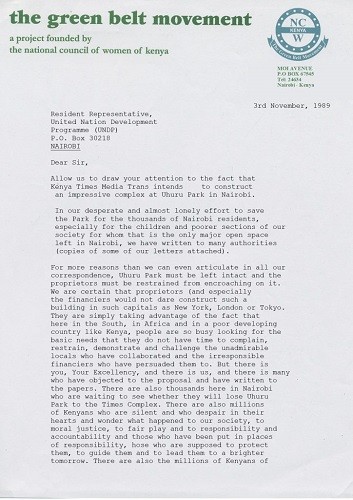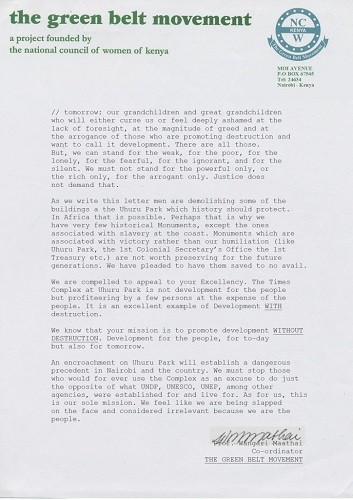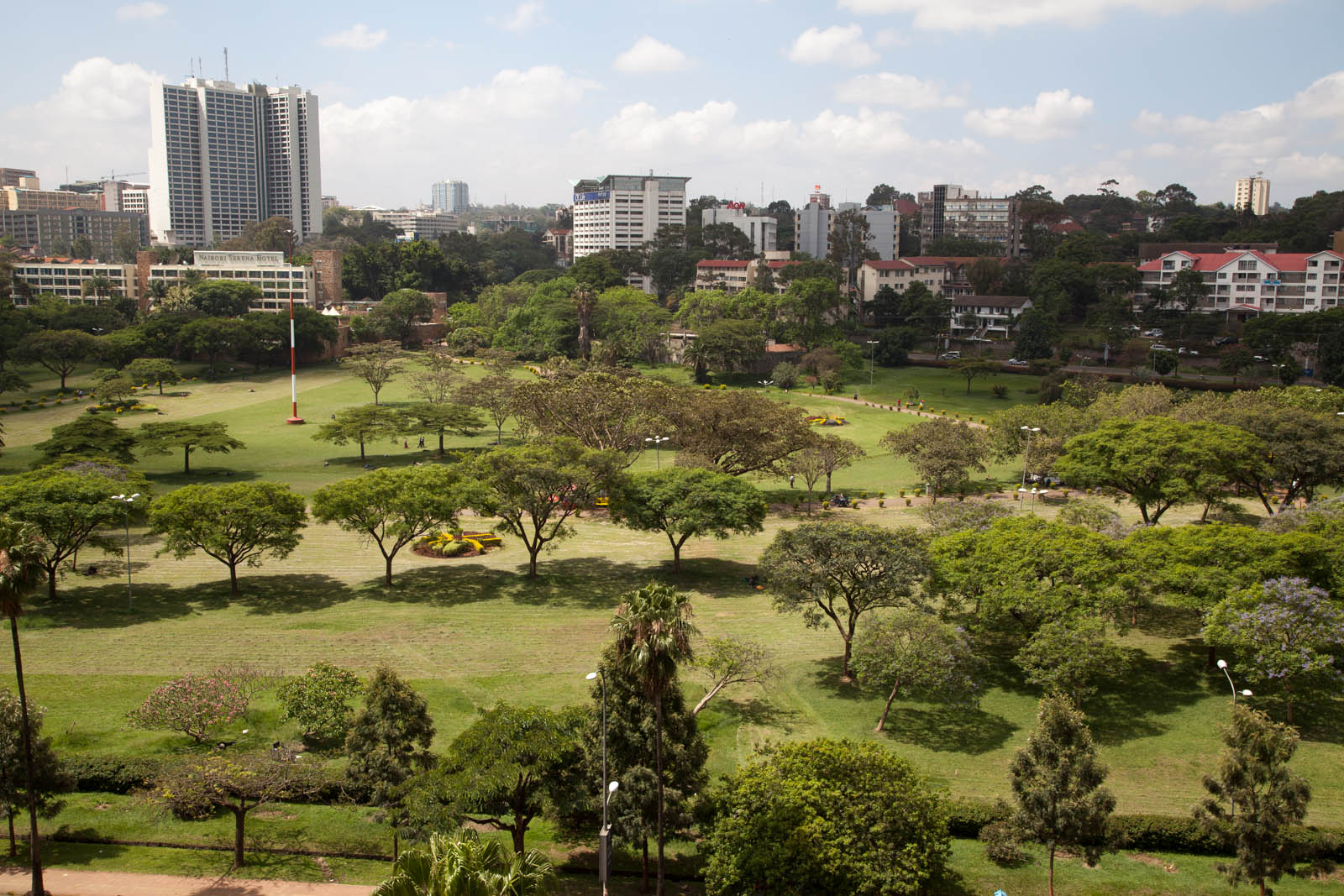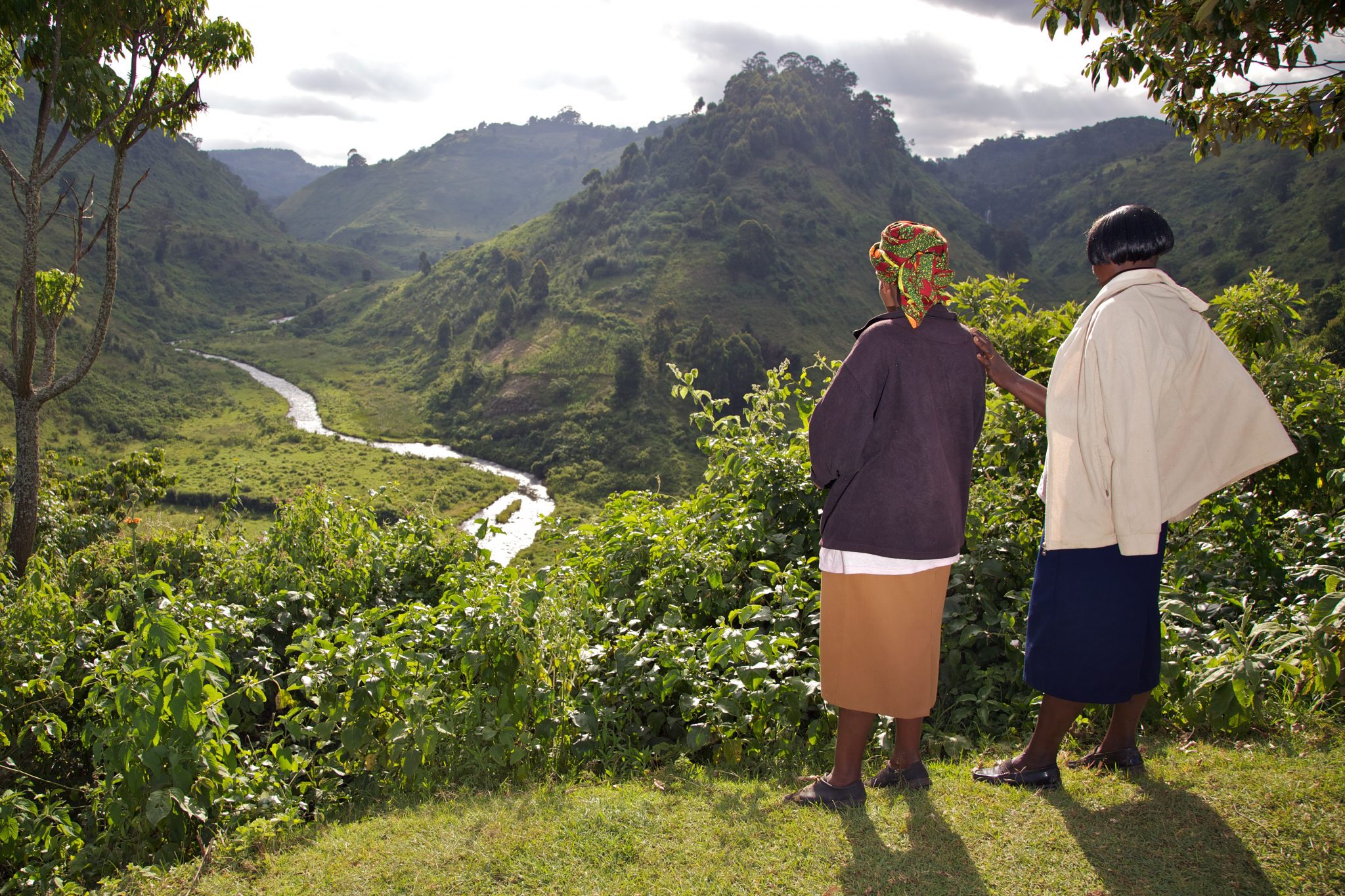



















“Uhuru Park must be left intact and the proprietors must be restrained from encroaching on it”
“There are also millions of Kenyans who are silent and who despair in their hearts and wonder what happened to our society, to moral justice, to fair play and to responsibility”
“We must not stand for the powerful only, or the rich only, for the arrogant only. Justice does not demand that.”
“We know that your mission is to promote development WITHOUT DESTRUCTION. Development for the people, for to-day but also for tomorrow.”
“We know that your mission is to promote development WITHOUT DESTRUCTION. Development for the people, for to-day but also for tomorrow.”
Wangari Maathai
Co-ordinator
THE GREEN BELT MOVEMENT
Wangari Maathai (1940–2011) was a Kenyan environmentalist, activist and the first African woman to win the Nobel Peace Prize. In 1977 she founded the Green Belt Movement, a non-government organisation that campaigned to conserve green space alongside women’s rights.

Oregon State University
Maathai had grown up on a farm in rural Kenya; in the 1940s she travelled to Kansas to study science, later becoming a lecturer and passionate environmentalist. She believed in the power of education, and the movement offered courses for women in bee keeping, forestry and eco-tourism.

Oregon State University
On behalf of the movement, she wrote many letters of protest to newspapers and politicians in Kenya, as well as to organisations like UNESCO, the UN Development Programme, and international leaders.
This letter, written in November 1989, is part of Maathai’s campaign to save Uhuru Park in Nairobi – the green heart of the city, upon which developers were threatening to raise a 60 foot skyscraper, Times Tower.
Uhuru Park, Nairobi, Olli Pitkänen
Trees were the central symbols of the Green Belt Movement. As she explained in her autobiography Unbowed (2006), “When we plant trees, we plant the seeds of peace and seeds of hope. We also secure the future for our children.”
By the end of her life, Maathai had mobilised Kenyans to plant 30 million trees, a feat for which she was awarded the Nobel Peace Prize in 2004.
Local Green Belt Movement members survey their work. USAID/Neil Thomas
